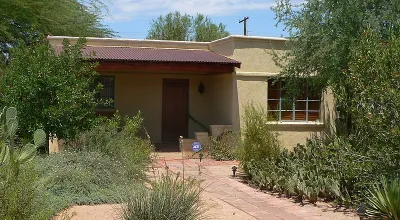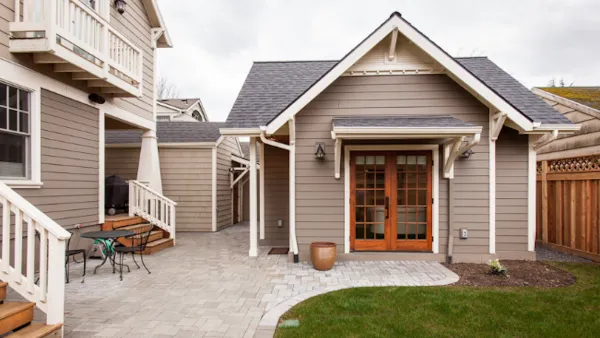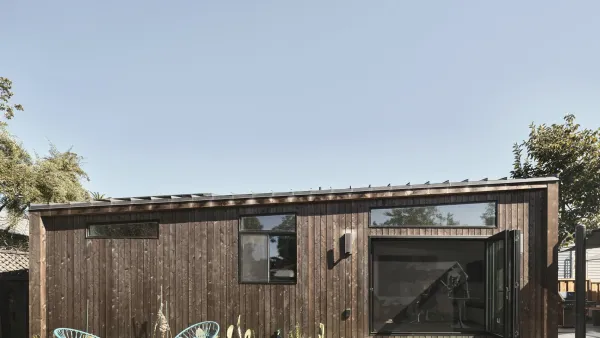Proponents of 'granny flats' say they can alleviate housing shortages and help families keep their homes, but others worry that the programs don't do enough to target low- and middle-income property owners.

In Tucson, as in many smaller cities across the country, housing costs "have risen by nearly 27% over the last year, due in part to low interest rates and a pandemic-inspired influx of transplants from other states." Jessica Kutz reports that as the percentage of housing-burdened residents continues to rise, local leaders are looking to Accessory Dwelling Units (ADUs) as a stopgap for displacement. Often called "casitas," backyard cottages or other types of add-on units can increase housing stock and offer more affordable options for renters.
Like other cities around the country, Tucson recently began the rezoning process to permit and encourage the construction of ADUs.
"But critics say this approach can backfire. In a series of public meetings held in May over Zoom, Tucson residents shared some common concerns. Many fear that ADUs could be converted into short-term rentals like Airbnbs, or that investors will simply purchase the properties in order to turn an even greater profit. Furthermore, ADUs are often too pricey for low-income homeowners to build." Sharayah Jimenez, a local housing activist, believes "the solution is to prioritize low-to-moderate-income residents (earning approximately $51,000 for a family of four) in the rollout of ADU development."
In Denver, Colorado, an ADU pilot program could soon provide a blueprint for how to reach such residents. Run by the West Denver Renaissance Collaborative, which includes the city and county of Denver and the Denver Housing Authority, the initiative has spent the past year assisting low-to-moderate income residents in rapidly gentrifying neighborhoods. The program provides between $50,000 to $75,000 in cost savings to homeowners who build ADUs, along with technical assistance and pre-approved designs. In addition, the city is offering $30,000 loans that do not have to be repaid if the owner agrees to rent the unit at an affordable rate for 25 years.
In Tucson, "It’s already happening informally in the Southside, where a majority of work has been done without permits." Jimenez says that "[r]ather than penalize the new additions, she hopes the city can find ways to promote them by educating current homeowners about their options and empowering families to hold onto their lots in the face of rising property taxes."
FULL STORY: Could casitas help prevent displacement in the West’s cities?

Analysis: Cybertruck Fatality Rate Far Exceeds That of Ford Pinto
The Tesla Cybertruck was recalled seven times last year.

National Parks Layoffs Will Cause Communities to Lose Billions
Thousands of essential park workers were laid off this week, just before the busy spring break season.

Retro-silient?: America’s First “Eco-burb,” The Woodlands Turns 50
A master-planned community north of Houston offers lessons on green infrastructure and resilient design, but falls short of its founder’s lofty affordability and walkability goals.

Test News Post 1
This is a summary

Analysis: Cybertruck Fatality Rate Far Exceeds That of Ford Pinto
The Tesla Cybertruck was recalled seven times last year.

Test News Headline 46
Test for the image on the front page.
Urban Design for Planners 1: Software Tools
This six-course series explores essential urban design concepts using open source software and equips planners with the tools they need to participate fully in the urban design process.
Planning for Universal Design
Learn the tools for implementing Universal Design in planning regulations.
EMC Planning Group, Inc.
Planetizen
Planetizen
Mpact (formerly Rail~Volution)
Great Falls Development Authority, Inc.
HUDs Office of Policy Development and Research
NYU Wagner Graduate School of Public Service




























